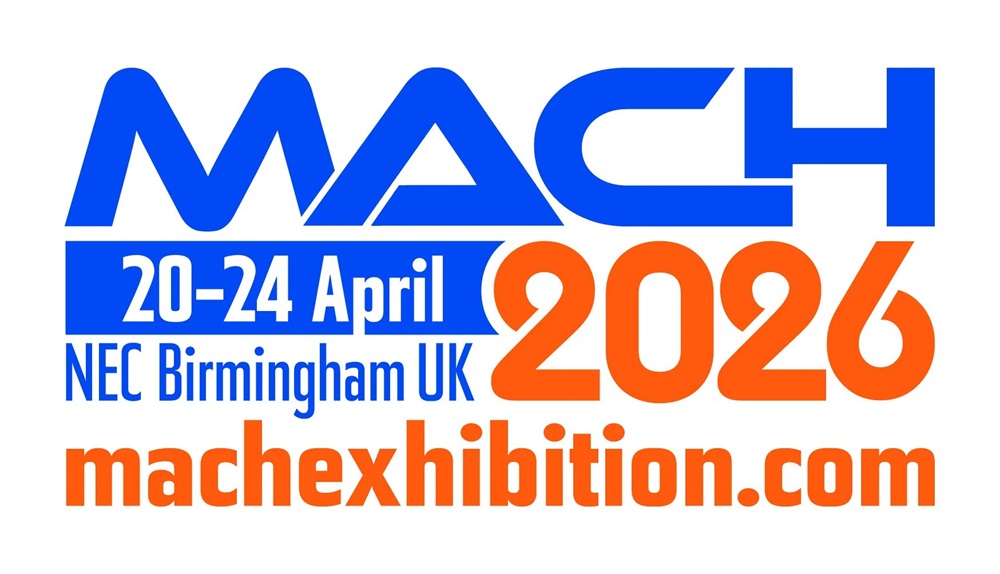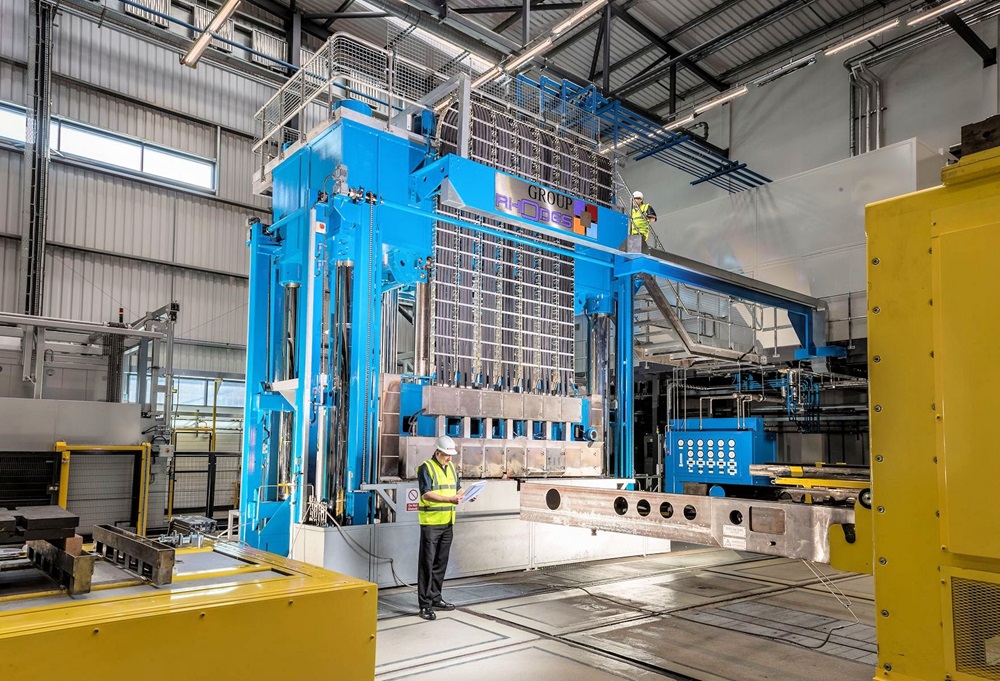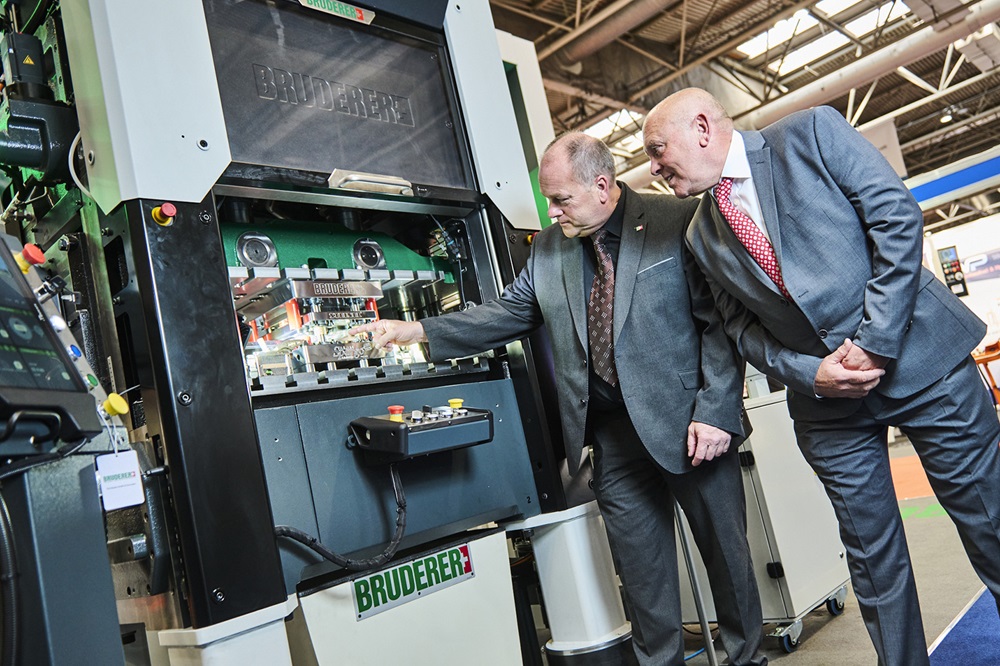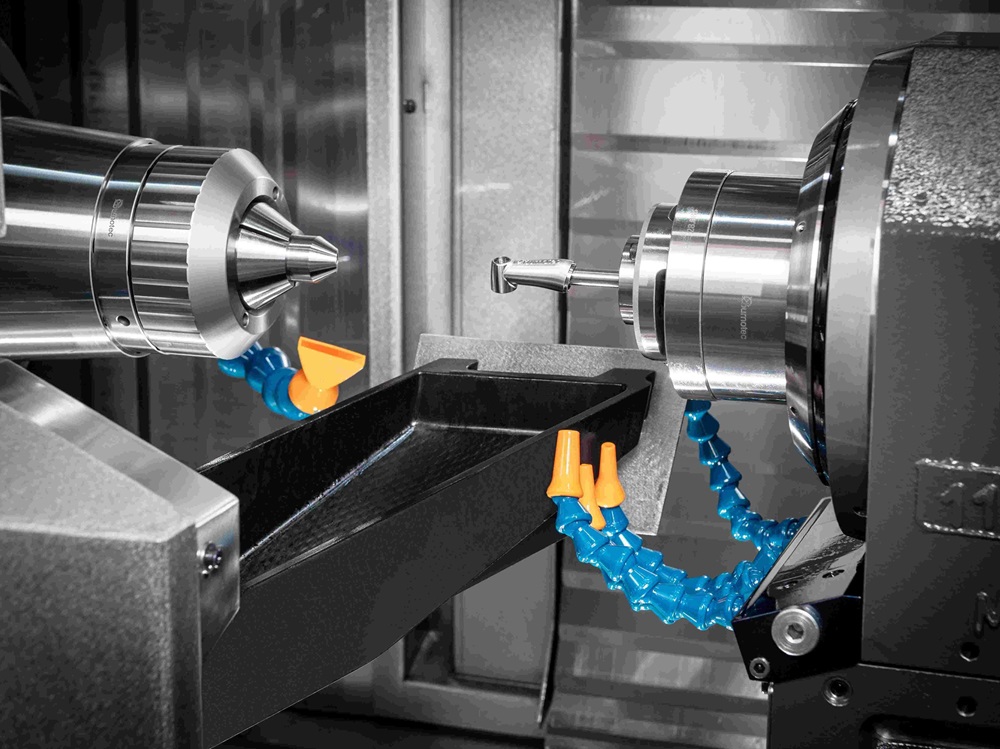In ancient times, those seeking advice asked the Oracle of Delphi to clear the mists of the future. On the other hand, experts at Starrag’s Immendingen TechCentre in Starrag rely on analysing overall equipment effectiveness (OEE) when it comes to future-proof production solutions for the medical industry.
“In the age of precision and innovation, uncertainty is paradoxically the greatest challenge for suppliers to the medical industry,” says Michael Paulus, head of TechCentre Immendingen at Starrag Vuadens in Switzerland. “Customers often ask me – how can I be sure that the machine I buy today won’t be outdated tomorrow and make me work inefficiently?”
This is particularly important for manufacturers of medical products who demand the highest levels of accuracy and reliability.
“Even the smallest deviations can have serious consequences in medical technology,” continues Paulus. “Our customers therefore expect machines that are not only precise but also extremely reliable.”
The challenge is guaranteeing such precision in a production environment that see increasing characterisation by rapid market changes and high flexibility requirements.
“From this point of view, the Starrag Bumotec product range deals with the issue of OEE.”
Bumotec experts use OEE as an essential performance indicator for evaluating the productivity and efficiency of devices and machines.
“OEE is a precise key figure in daily plant management, as it evaluates the actual utilisation of the machines during the planned production time,” explains René Benninger, business development manager for medical technology at Starrag Vuadens. “This allows us to identify and eliminate inefficiencies and sources of loss within operational production times to increase efficiency and profitability.”
OEE provides a comprehensive assessment by considering three main factors: availability, performance and quality. Availability describes the percentage of time the equipment is available for machining during the scheduled production time. Higher availability means minimal downtimes and optimum utilisation of the devices.
Performance assesses how efficiently the device works during operation compared with its maximum possible speed.
“Slow cycle times and minor failures reduce performance and overall productivity,” states Paulus. “A higher performance indicates that the device works closer to its maximum capabilities.”
Success stands and falls with the third factor: quality. This is because it measures the proportion of products manufactured following quality standards compared with total production. It takes into account errors, rework and rejects. High quality shows that the manufacturer effectively controls the process and complies with the specified quality standards. Bumotec analyses typical problems and develops targeted strategies to improve overall performance.
To calculate OEE, the availability, performance and quality are multiplied together. The final result is a percentage value.
Says Paulus: “The ideal would be 100% because it stands for perfect performance, where the equipment works with maximum availability, speed and quality without interruptions or defects.”
The major loss categories in production are: the loss of availability due to equipment failures, material bottlenecks and stoppages; loss of performance due to machine wear, inferior materials and labour shortages; and loss of quality due to rejects and reworking.
“The system manufacturer can influence all these losses,” says Paulus.
A practical example from a Starrag customer shows how it is possible to reduce set-up times. The supplier manufactures jaw parts in various sizes and shapes from standard stainless steel, directly from bar material. This machining strategy enables stable clamping and makes pallets superfluous. The company produces all parts in a single pass, with deburring completed in-cycle. The result? The elimination of waiting and set-up times associated with further processing.
Although the uniform raw material results in a large amount of swarf, easy management is possible thanks to a robust production solution with high-pressure flushing. Efficient programme and tool management and an adapted finished part removal system ensure smooth operation. Tool changes take place during production, while critical dimensions are manufactured adaptively and measured in-process.
The experts took a similar approach to another challenging application. The customer machines a diverse portfolio of parts, from a batch size of one to series production, from various materials and designs. This production mix requires particularly flexible machine kinematics with easy changeovers. In other words: machining centres that it can adapt to different production requirements without great effort.
OEE has also proven itself many times in practice regarding production waste. Subtleties often make the decisive difference. This includes effective chip management and continuous raw material supply via a bar magazine, for instance. These measures ensure reliable, continuous operation and minimise unplanned downtimes. Co-operation between machine manufacturers and customers is of central importance here.
“Only through close dialogue can we ensure that the customer’s specific requirements are met and that production processes run optimally,” says Paulus.
Customer service – before and after the purchase – is an equally important element in the OEE process.
In summary, the benefits of a successful OEE process are enormous. Continuous production overnight and at weekends ensures maximum capacity utilisation, even with small batch sizes. The sets produced are processed immediately, which significantly reduces throughput times. The costs for operating materials are now minimal, as hardly any collets, pallets and fixtures are required.
“The basic accuracy of customer products has increased and remains consistently high,” says Paulus. “Using bar material eliminates the need for cutting to size, simplifying the production process and making material handling more efficient. A positive side effect is that personnel expenses will also fall.”
The OEE process is also well received by customers. Paulus reveals that a medium-sized user told recently told him briefly and concisely about the advantages of a successful OEE process: ‘In the morning, I stock up on materials and set up a few tools if necessary. I can then concentrate on running the business all day.’
“This proves that an optimally applied OEE process increases efficiency and productivity, reduces operating costs, and ensures quality.”
More information www.starrag.com



















